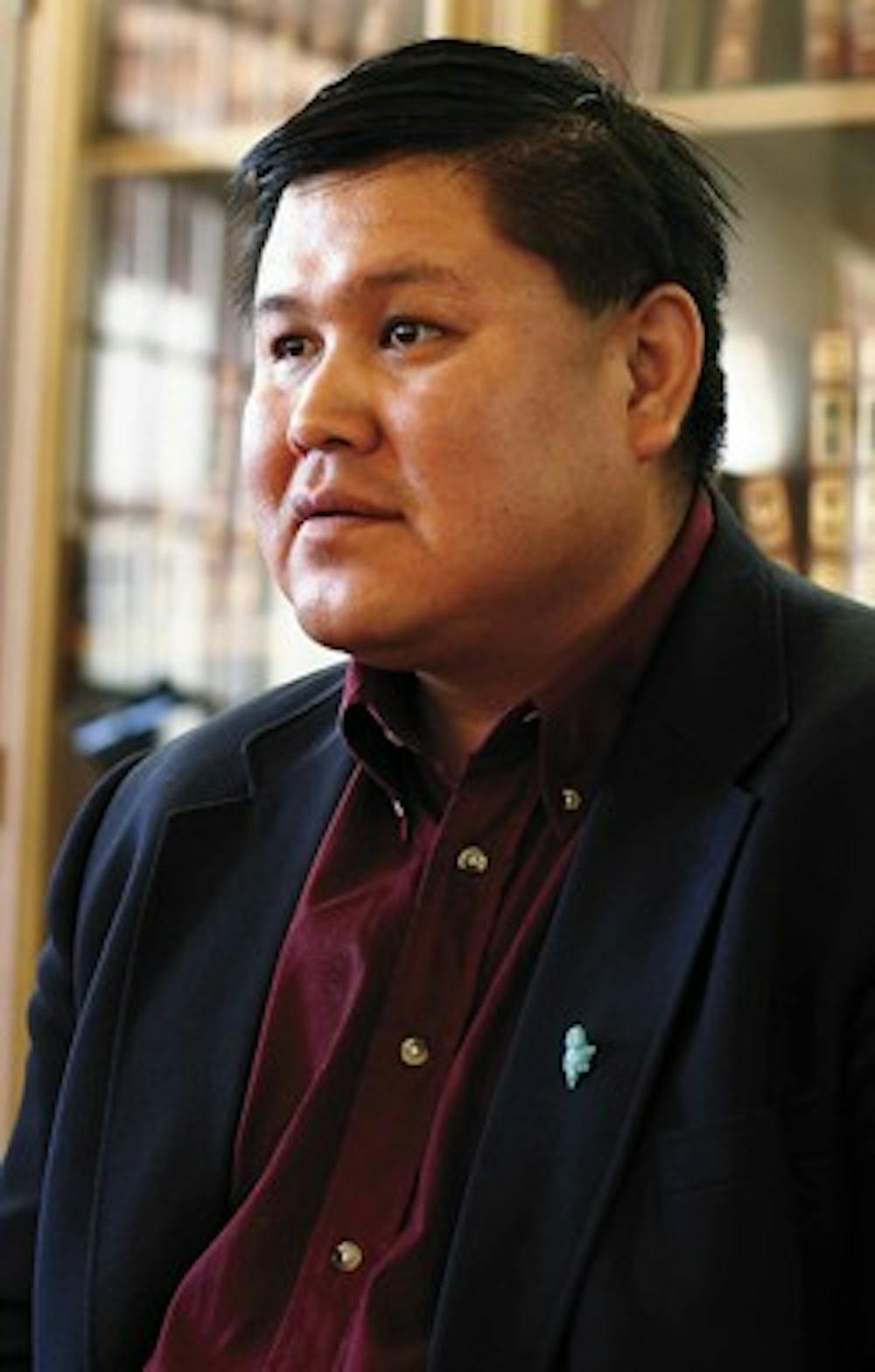by Mark Schaaf
Daily Lobo
Two business leaders from the American-Indian community talked about the importance of economic development on and off the reservation Wednesday.
Marvis Aragon, CEO of Acoma Business Enterprises, and Michael Clani of Clani & Associates LLC spoke to an audience of seven in the Willard Reading Room as part of the University Libraries and the Indigenous Nations Library Program.
Paulita Aguilar, curator of the program, said the event provided insight into American-Indian business methods that are not often publicly discussed.
Get content from The Daily Lobo delivered to your inbox
Aragon, whose companies include the Sky City Culture Center and the Sky City Casino, Hotel and Travel Center, said his grandmother encouraged him to live a balanced life.
"Maintaining a balance has been a challenge," he said.
He applies that advice to his business, he said.
The Acoma tribe was one of the first to start gaming, but Aragon said it was the tribe that initiated the practice, not the government.
"We started the gaming, it was not given to us," said Aragon, who added that the government only provided regulations and guidelines.
His company has about 750 employees, which is the largest employer in Cibola County, Aragon said.
He said Acoma hasn't fallen into debt like other tribes because of small and gradual changes.
"I believe people in Acoma have dreams, and I want to help people achieve those dreams," he said.
Aragon said it is also important for leaders to surround themselves with a quality staff that "knows more than you do in certain areas."
Aragon also spoke about American-Indian gaming. He said although in some cases it has pushed tribes apart, it has mostly brought tribes together.
Clani, a graduate of the Anderson Schools of Management, started the American Indian Business Association on the UNM campus with the goal of increasing the graduation rate of American Indians.
He started a magazine, "Rez Biz," to educate American Indians about opportunities in business. His business tries to educate leaders, he said, and teaches them not to rely on government.
It also encourages American Indians to go back to the reservation and be employers rather than employees, he said.
And failure is OK, he said. He compared it to a baseball player who strikes out, but also hits a lot of home runs.
"If you're doing it right, you'll fail 80 percent of the time," he said.






